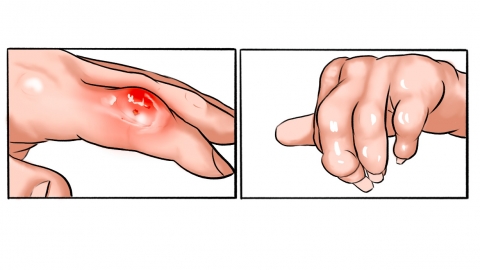Rheumatoid Arthritis Treatment for Finger Joints
Generally, rheumatoid finger joints may be caused by environmental factors, overexertion, abnormal immunity, Epstein-Barr virus (EBV) infection, mycoplasma infection, and other factors. The condition can be improved through general treatment and medication. It is important to seek medical attention promptly and follow medical advice for treatment. Details are as follows:

1. Environmental factors: Long-term exposure to cold and damp conditions may affect blood circulation around the joints, slow down the metabolism of joint tissues, stimulate nerve endings around the joints, and cause changes in local immune responses, leading to rheumatoid arthritis in the finger joints. Avoid prolonged exposure to cold and damp environments, keep joints warm, and maintain a dry and well-ventilated living and working environment.
2. Overexertion: Long-term or excessive manual labor may place the body in a continuous state of stress, producing more inflammatory mediators, causing immune system imbalance, and triggering rheumatoid arthritis in the fingers. Arrange work and rest periods reasonably, and avoid prolonged, continuous use of finger joints.
3. Abnormal immunity: The human immune system can distinguish between self and foreign substances. However, when immunity is abnormal, the immune system mistakenly attacks its own joint tissues as if they were foreign pathogens, causing inflammation of the joint synovium and joint damage, resulting in joint pain. Follow medical advice to use immunomodulatory medications such as leflunomide tablets, methotrexate tablets, and dexamethasone tablets.
4. EB virus infection: After infection with EB virus, the virus may alter the immune system's ability to recognize substances, causing an immune response against the body's own joint tissues, accompanied by fever. Follow medical advice to use antiviral drugs such as valacyclovir hydrochloride tablets, ambroxol hydrochloride oral solution, and acyclovir tablets.
5. Mycoplasma infection: Toxins or metabolic products produced by mycoplasma infection may act as antigens, stimulating the body to produce antibodies. During the binding of antibodies and antigens, the immune system may mistakenly attack finger joint tissues, triggering rheumatoid arthritis, accompanied by coughing. Follow medical advice to use medications such as roxithromycin dispersible tablets, azithromycin dispersible tablets, and levofloxacin hydrochloride tablets to eliminate mycoplasma.
It is important to pay attention to lifestyle improvements and avoid triggering factors to comprehensively enhance treatment effectiveness.









